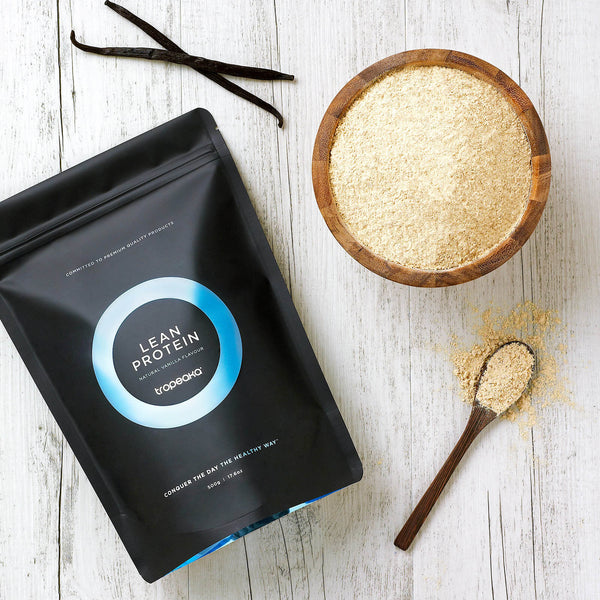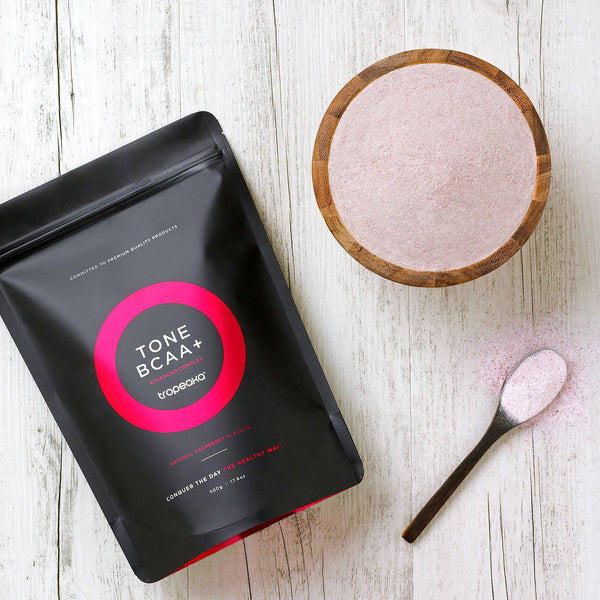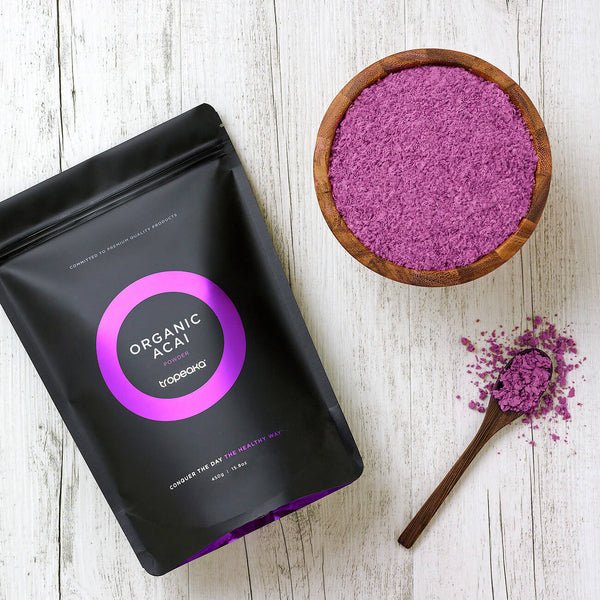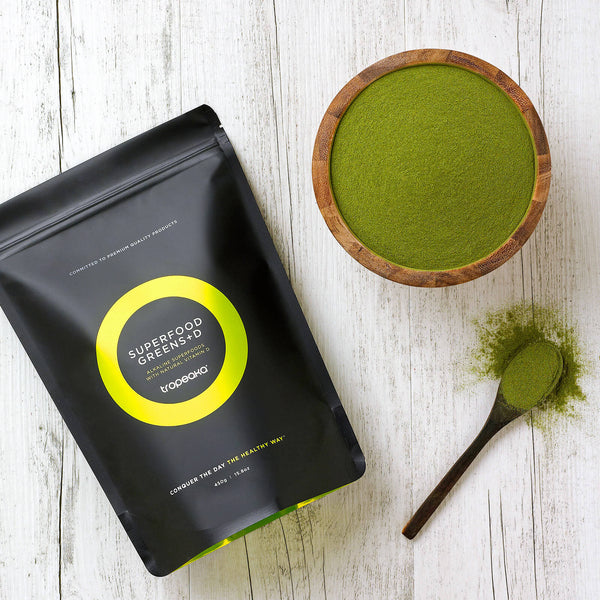With oodles of articles on where to find it, why it disappears, and how to keep it; it’s fair to say we’re obsessed with motivation. We’re told that staying motivated will ensure we become successful, fit, wealthy and happy. However, motivation does not equal action.
T
he way we wait until motivation strikes before starting a new creative project or signing up for a gym membership only highlights the fact that we are largely misinformed about motivation.
Are you ready for the truth?
What is motivation?
‘At some point, the pain of not doing it becomes greater than the pain of doing it.’ - Steven Pressfield, The War of Art.
In other words, there’s a point where it becomes easier to change than to stay the same. A complex psychological force that drives change, motivation can be biological, social, emotional, or cognitive in nature.
It’s fuelled by the desire to move:
- towards something new (and pleasurable), or
- away from something painful or unpleasant in your current reality.
We crave motivation because we want to achieve mastery, be self-directed, and live with purpose. Peak motivation can get us into the flow-state, where we are so focused on the task at hand that the rest of the world fades away.
Having a vision or goal is the easy bit; initially, you get excited and motivation floods in. But you then have to figure out how to do it, devise a plan, and then actually go ahead and take action. This is where things get interesting because as soon as we hit an inevitable roadblock or come face to face with self-doubt, motivation is known to fade fast.
Motivation fades: it’s normal and ok
No matter how motivated, committed and inspired we are, there will always be lulls - and that’s ok! Like all human emotions, motivation naturally ebbs and flows. No matter what your goals are, there are bound to be days and weeks where you don’t feel as passionate or excited, and it’s important to accept this without guilt, shame, or resistance.
While fading motivation is natural, healthy and unavoidable, a problem arises when we wait around to feel all fired up again before taking action towards our projects, goals and dreams. The following truths about motivation will help you better understand this coveted psychological phenomenon and develop strategies to reach your goals without relying on the constant presence of motivation.
‘Towards’ motivation vs ‘away from’ motivation
As mentioned above, our motivation is fuelled by our desire to either move away from something in our current reality or move towards something new. For example, ‘away from’ motivation looks like getting a gym membership because you don’t want to feel weak and tired any more. ‘Towards’ motivation can also look like getting a gym membership, but your desire might be to challenge yourself and meet new people.
‘Towards’ motivation is focused on achieving goals, whereas ‘away from’ motivation is focused on avoiding problems. While they both use intrinsic desire to fuel motivation, ‘toward’ motivation is the healthier and more sustainable of the two. If you do have some ‘away from’ motivations driving you, see if you can reframe them to focus on what you’re moving towards.
Tapping into intrinsic motivation wherever possible is healthier and more sustainable
Intrinsic motivation vs extrinsic motivation
Regardless of the reward or the consequences, we’re much more likely to put time and effort into something we enjoy. When we enjoy or care about what needs to be done, we feel rewarded from within when we do it. This kind of motivation is called intrinsic motivation.
When our motivation comes from within, and the task or behaviour itself truly satisfies us, we are able to be more creative and innovative. Whether it brings a sense of meaning, feelings of progress and accomplishment, or just pure and simple pleasure and enjoyment, our reward is a positive emotional state.
If we are motivated to participate in something either to receive an external reward or to avoid an external consequence or punishment, we are experiencing extrinsic motivation. Productivity can be increased by using extrinsic rewards, but the quality of the work performed is unlikely to be as high without the presence of intrinsic motivation.
For example, you might turn up to a job you dislike because you’re motivated to get paid, but you’re more likely to come up with great ideas and creative solutions if you find your job rewarding, engaging, and challenging.
Tapping into intrinsic motivation wherever possible is healthier and more sustainable, but that doesn’t mean extrinsic motivation is always bad! It can be useful as an incentive to learn something new or to cultivate an interest in something you don’t already like. Cash prizes for fitness transformations is an excellent example of an effective extrinsic motivation that could help cultivate intrinsic motivation in new members at a gym.
How to find intrinsic motivation
Intrinsic motivation doesn’t happen by chance. In fact, several requirements need to be met in order to reach that psychological sweet spot.
- A challenge: one of the most important sources of human happiness and motivation is working on tasks that have just the right level of difficulty. The optimal challenge makes reaching your goals feel possible, but not certain. Ideally, a little personal growth will be required for you to reach your goals.
- Goals with personal meaning: do you know your ‘why’? You can help your intrinsic motivation return if you’re able to reconnect with your reasons for setting your goals in the first place.
- Curiosity: You’ve got to be interested! If pursuing a project brings you to a greater understanding of yourself (or life in general), intrinsic motivation is likely to return, even if it disappears for a while.
- To feel in control of your pursuits: in other words, feeling that you've chosen your goals and projects, rather than feeling as though they’ve been selected for you.
- The 3 C’s - collaboration, cooperation, or competition: we gain inner satisfaction by helping others, working with others, and when we can favourably compare our progress and performance to that of other people. Which of the 3 C’s motivates you the most?
- Recognition for what we’ve done: even the strongest intrinsic motivation can wane without some positive reinforcement from others now and then! Does anyone recognise your effort and commitment?
Next time you lose motivation, check-in on whether any of these critical factors are missing before drawing any drastic, self-defeating conclusions!
An immobilising fear of failure could also be holding you back
What can cause a consistent lack of motivation?
Losing motivation entirely for an extended period can mean many different things. If you’re totally unenthused about everything, including the projects and pastimes you care most about, you could be experiencing burn out. Physical and emotional exhaustion are some other telltale signs you’ve neglected your wellbeing and pushed through chronic stress for too long.
Despite your desires, do you have a belief that you’re not capable of achieving your goal or accomplishing the task? Self-confidence is the belief in your ability to reach a specific outcome, and keeping yours high can help increase and maintain your motivation. If your self-confidence is low, your motivation is likely to fall to an equally low level. The first step to rebuilding your self-confidence is to identify the thought processes that are preventing you from taking action.
An immobilising fear of failure could also be holding you back. If you inherently doubt your ability to accomplish the task at hand, you’ll probably spend a lot of time procrastinating. Despite feeling anxiously motivated, you find yourself unable to take action, or worse - you unconsciously self-sabotage to put even more distance between you and your desires.
One helpful trick is to reframe our definition of failure. Thomas Edison famously said, ‘I have not failed; I've just found 10,000 ways that won't work.’ Rather than being something to avoid, failure is something very positive that we can learn from. The key is to stay flexible and open to change as you learn from your failures and grow to overcome them. It’s an essential part of the process!
Fear of failure is closely linked with perfectionism. While people with a perfectionist mindset have a deep desire for excellence, their energy and attention are focused on failure. Striving to do your best is one thing, but demanding perfection is a fast way to burn yourself out and shatter your motivation along the way.
Conflicting values and beliefs
Fear of failure, low self-confidence and perfectionism aren’t the only reasons we might find ourselves trapped in procrastination; this self-sabotage can also be the result of an internal personal conflict.
A conflict between two of your values or beliefs that seem to be in opposition with each other can leave you feeling stuck and not knowing which way to move. One common example of conflicting values sounds like, 'I value my health, but I also value pleasure.’ In this situation, consistent healthy food choices may be a struggle if we believe we can’t have both at the same time.
When we resolve our conflicting values and integrate them, so they work together, we remove the resistance between ourselves and our goals, which allows us to take action with ease and enthusiasm. In the example above, we can reframe our beliefs around healthy eating so that health and pleasure are no longer conflicting ideas when it comes to food.
Food for thought: eating with pleasure (AKA sensual eating) is good for your health!
When we believe that healthy food can be delicious and pleasurable to eat, our values will no longer be in conflict, and our motivation to make healthy choices will be more consistent and strong. You only need to take a look at the Tropeaka recipe blog to be convinced!
When we create rituals, we replace inconsistent motivation with automatic habits
Motivation vs momentum
It’s clear by now that motivation does not equal momentum. Simply having motivation does not guarantee you’ll take action, nor do you require motivation to complete or accomplish something. When we rely on motivation alone, our emotional state dictates our ability to accomplish what we want. Fortunately, it’s possible to maintain momentum without motivation.
The secret is ritual. When we create rituals, we replace inconsistent motivation with automatic habits. Unlike your motivation, your habits are not subject to an emotional ebb and flow, so it ensures that action is taken with regularity and consistency. The trick is to use the peak of your motivation to establish your rituals.
Rituals: consistency really is key
If your routine is to get up at 5 am and go straight to the gym every weekday, then you are relying on your habits, and are less dependent on motivation. If you don’t have a set time to do your workout, then each day you’ll wake up thinking, ‘I hope I feel motivated to exercise today.’ When working towards your goals is dependent on motivation or inspiration, there’s a good chance you’ll put it off or skip it altogether.
The key to any good routine is that it removes the need to make a decision. If you’re asking yourself, ‘what should I do first? When should I do it? How should I do that?’ you may never get moving! By helping us avoid decision fatigue, routines make our tasks easy, automatic, and repeatable.
Rituals are routines imbued with your own personal meaning. With intention and mindfulness, they remind you of your ‘why’ while taking you through the steps to get you started. Well-established rituals can take your mind off the finish line and take away the overwhelm that often comes when we set a big goal.
We all know starting is the hardest part, but spending a little time on a task when you’re not feeling motivated can actually help jump-start your motivation. On the other hand, putting it off for too many days, weeks or months in a row can make it more and more challenging to rekindle the fire. Consistency is key!
Remember that you’re in charge
Have you ever set a goal based on what you think you 'should' do? To feel motivated, you must be able to tap into your ‘why’, so the reason you set your goal in the first place needs to be your own. Check-in with yourself regularly; do the goals you’ve set really make you happy?

Journal to get some clarity about your ‘why’, and explore the reasons you’re going for this goal. As a cluttered mind can be debilitating, moving the process from your head and onto paper is one way to reconnect with your motivation. You can always read your journal to remind yourself of the bigger picture when faced with the less enjoyable, but necessary tasks.
If there is no clear reason why you’ve set a particular goal, remember that you can change the plan if you want. You can keep going, you can revise it, or you can dump it altogether. Feeling in control is much better for your intrinsic motivation than feeling like you don’t have a choice!
Energy flows where your attention goes, so conserve your motivational energy by focusing only on the factors you can control.
Always celebrate as you go
Have you ever noticed that reaching a goal can sometimes feel a little anti-climactic? So much personal growth takes place along the way that the original goal is no longer a big deal; once you get there, it feels normal.
Celebration is integration, and there’s no win too small to be celebrated. Take the time to look back and celebrate how far you’ve already come. Share your wins with your friends, family, teammates and colleagues, because praise and recognition completes the positive feedback loop in your brain.
Praise triggers the release of dopamine, the motivation molecule that boosts your drive, focus and concentration - so make sure you celebrate and get your dose regularly!
Increase your dopamine naturally for more motivation
Dopamine enables you to plan ahead and focus on your goals. It’s also in charge of your pleasure-reward system, allowing you to experience enjoyment, pleasure, and even euphoria. Too little dopamine can leave you unfocused, unmotivated and lethargic while increasing your risk of depression.
Fortunately, our daily lifestyle choices, diet, exercise and sleep can help the brain synthesise and use dopamine more effectively, and see noticeable improvements in your cognitive function, performance and motivation.
Sleep more to do more
A lack of sleep can severely hinder motivation. Sleep deprivation can lead to mild prefrontal dysfunction, a state in which your brain is unable to regulate your emotions or attention.

Practice good sleep hygiene by making your bedroom a sanctuary for rest, winding down before bed, and going to sleep and waking up around the same time each day. Sticking to a sleep routine can help your body find balance, but you can take it further with meditation.
Take 10 minutes before bed every night to meditate, settle your mind, and connect with your breath. Meditation can also help you tap into some motivation and improve your cognitive function when you’re feeling a little sleep deprived.
Nutrition essentials for healthy motivation
Processed foods, refined sugar and artificial sweeteners may give you a short-term dopamine rush, but this will always be followed by a crash - not to mention the reduced levels and efficiency of dopamine in the long term.

Vitamin D, vitamins B6, B9, B12, copper, zinc, magnesium, iron and essential fatty acids are needed for the amino acid l-tyrosine to be turned into dopamine. Below is a list of some of the many dopamine-boosting plant-based foods that contain these essential nutrients:
- apples (also contain quercetin, an antioxidant that protects the brain and generates dopamine)
- avocados
- bananas
- beans (fava beans contain l-dopa, a direct precursor to dopamine)
- beets
- chocolate
- green leafy vegetables
- nuts and seeds (almonds, sesame seeds, and pumpkin seeds are best!)
- oats
- olive oil
- oregano
- peanuts
- rosemary
- sea vegetables
- sesame and pumpkin seeds
- soy products
- turmeric
- watermelon
A diet rich in plant-based proteins can help increase your motivation
Superfoods and supplements for motivation
Too little protein in your diet can leave you with low levels of the amino acids that your body turns into dopamine. A diet rich in plant-based proteins can help increase your motivation, along with many other benefits to your health and fitness. Taking an organic, natural protein supplement like Tropeaka Lean Protein is a great way to stay on top of your overall health as you work towards your goals.

Spirulina is another supplement worth taking for a motivation boost. This blue-green algae is one of the most nutrient-dense superfoods on the planet and is an amazingly rich source of the plant-based iron and l-tyrosine that are vital for the healthy production of brain chemicals that fuel motivation.
Medicinal herbs such as Panax ginseng and Gingko Biloba also act on the brain’s dopaminergic system, while matcha tea contains L-theanine, which is known to support dopamine levels and dopamine efficiency.
Regular exercise increases dopamine and improves motivation
Research has found that exercise raises baseline levels of dopamine by promoting the growth of new brain cell receptors, so it’s no wonder that a lack of mental motivation is often linked with a lack of physical movement.

Physical exercise is one of the best things you can do for your brain. Working out increases brain cell production, slows down cellular ageing, and improves the flow of nutrients to the brain. Keeping fit increases your levels of dopamine and serotonin to keep you motivated and feeling good, as well as norepinephrine, which helps you cope better with stress.
Make your gut health a top priority
Although dopamine is a brain chemical, about 50% of it is found in the intestines where your gut microbes make it. What this means, is that the health of your intestinal flora directly impacts the production of dopamine and your ability to experience motivation, along with optimal emotional and cognitive function.
An imbalance of bad bacteria also leaves toxic byproducts called lipopolysaccharides, which destroy the cells that make dopamine. Making your gut health a top priority is a great way to improve your motivation, on top of a vast list of other mental and physical health benefits.
Music, mental rest and motivation
Have you ever wondered why boring or unpleasant tasks are so much more enjoyable when you’re listening to music? Perhaps music has helped you get into early morning runs or helped you push a little harder in your workouts? You’ve probably felt that extra rush of motivation during your favourite song. As music can have a wide range of effects on your nervous system, the right music selection can supercharge your motivation.
Not only do studies show that listening to the music you love makes your brain release more dopamine, but it's also clear that music is a powerful neurological tool that can help us change our mindset and mood. Listening to music you enjoy can reduce fatigue and even improve motor coordination - which is why it’s so much easier to bust out your best dance moves when you actually like the music!
Music helps us relax and find mental peace by distracting our busy minds. Mental rest is essential for our brains to recharge and our bodies to refuel, and it enhances our ability to get motivated and concentrate later on.
Fill your mind with uplifting and inspiring information
When your motivation takes a serious nosedive, it’s easy to beat yourself up for being ‘lazy.’ Now that you know the truth about motivation, this won’t be the case! The next step is to surround yourself with positive thinkers, read inspiring books and listen to podcasts that amp up your self-confidence.
You can also check out some of the other articles on the Tropeaka blog to get inspired, informed and motivated!





